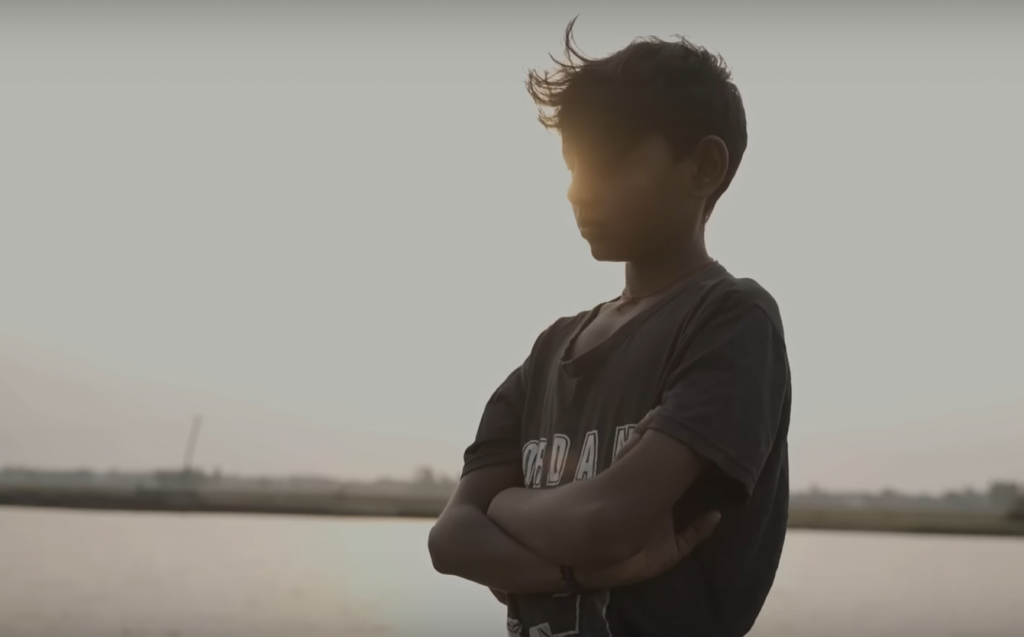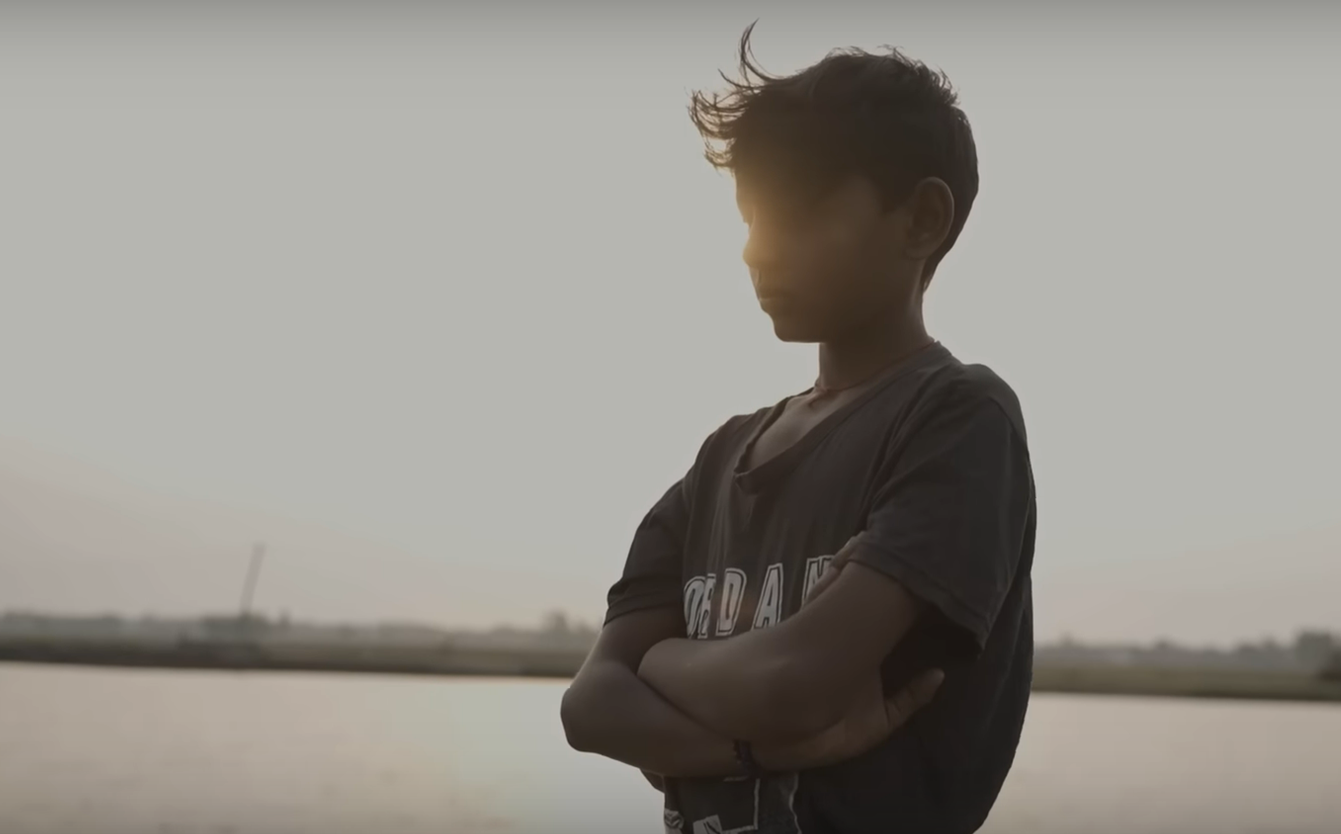Some years ago, a young couple started their journey in life together after a modest wedding celebration. They lived in rural Cambodia, where their families had lived for generations. The husband had inherited a tiny plot of land and built a two-room bamboo house on the edge of it, careful not to sacrifice too much of the precious farm land where he intended to grow cassava. The fast-growing root-crop is versatile and used in many ways for food and industry. His grandfather had taught him how to harvest and process starch from the roots, used to make flour and bread. He spent the last of the money gifted to them at their wedding to purchase the cuttings. While the plants grew, he worked all day with a construction crew. His young wife took in laundry to hand-wash and cleaned a nearby restaurant from 10 p.m. until 2 a.m. After a long day on the job site, her husband would come to the restaurant to help her finish up.
The nourishing rain and tropical sun made the plants thrive, and the couple were proud of their crop as many villagers commented on the well-tended field. When the plants were about two feet tall, the locusts came, attracted by the fresh green shoots. The couple stayed in the field all night with torches fighting back the locusts. The swarm was a small one, and the damage was minimal. After that, the husband would often walk among his
crop in the dead of night, checking for rodents and pests. So much was riding on this little crop.
About this time, the couple found out they were expecting a child, and they were overjoyed. He hoped for a boy. She wanted a boy too, because it was what he wanted.
Soon the cassava were ready to be harvested. The couple worked day and night for weeks to harvest the roots and the stalks and to make cuttings for the next crop. It was around this time that their son was born. They named him Chetra which means “a pure light that shines.”
When Chetra was 2 years old, his mother was admitted to the hospital in Battambang after struggling for 10 days with a viral infection. After another 2 weeks in the hospital, she came back home to her husband and young son, recovered, but no longer able to have children.
When Chetra was 4 years old, they added two rooms to their tiny house, which dad built himself out of bamboo in the traditional Cambodian style. They were also able to get electricity in the front room. It only worked about 3 hours each day, but it helped a lot.
Sometime in Chetra’s 5th year, a great tragedy happened to their little family. Chetra’s dad was badly injured when a cement mixer and the floor above him collapsed. His lung was punctured, and he had severe internal injuries. He spent weeks in the hospital but his life was lost to his injuries and sepsis.
His wife was devastated, but she was determined to keep her son safe and healthy. She tried to harvest the cassava herself, but it was too much work, even with the help of her elderly relatives, who assisted. How could she ever replace her husband, who worked day and night to provide for them? Her neighbor insisted that she find another man. She looked at herself in the mirror, and at the one good dress she owned. Both revealed the hardships of recent years. She thought of her infertility. She gave up on that idea.
She had borrowed a large sum of money from a local farmer to pay for her husband’s hospital debt and burial. This debt was about 4 million riels ($975US). The local farmer offered to take over the harvest and the little field in exchange for paying the debt. He promised to return the land in 5 years, but she had nothing in writing to prove this. She knew it wasn’t a good deal, but she was desperate. As she watched the farmer’s hired men come and harvest the cassava that she and her husband had planted, she wept. But there was no time for grieving. She had to figure out what she was going to do now.
Times were hard. Every month, it became more and more difficult to provide food for Chetra and herself. Everything of value that could be sold had been sold, including the cookware her husband had bought for her after their second harvest. All she had were some tattered clothes and a few cherished photos. It was time for Chetra to start school, but she could not imagine how to get the money for his uniform and new shoes. Her entire income amounted to less than 200,000R, or about $48US per month. Her health deteriorated even more. She had never been the same after the fever that nearly took her life.
One day, her neighbor came over carrying a tattered business card. It was from a company in Phnom Penh. They advertised for workers and offered to pay travel expenses and provide lodging for any new hires from out of town. They even had openings for women! The name of the company was vaguely familiar. She had seen the logo on the truck hauling bricks to her husband’s construction site. She called them, and they agreed to provide her travel money and a single bed where she and Chetra could sleep. In a week, a man came to her door and, after seeing that she was young and fit enough to work, had her sign a contract in exchange for 500,000 Riels ($121US). Surprisingly, he did not seem to mind at all that she had a young son for whom she was the sole caregiver.
She packed all that they could carry, including her precious photos and a couple of special toys Chetra cherished. She put on her good dress and wore her hair in the style her husband had always liked. After purchasing their bus tickets, she bought some inexpensive meat and bread for sandwiches. This was a real treat for them. It had been a while since they could afford meat. Her elderly aunt brought rice and fish for them to take. She couldn’t help but be excited. She and Chetra had full bellies for the first time in many weeks. Maybe this was going to work out, after all. They said goodbye to their home and friends and walked to the edge of the village, to the bus stop.
Chetra and his mom were astounded and frightened by the frenetic chaos of Phnom Penh. No one in their family had ever visited the capital city. It seemed loud and dangerous to Chetra, and he wanted to go home. The “company” was a gigantic brick factory that took up two city blocks, with enormous kilns churning black smoke into the air. Chetra’s mom saw her boss for only a few moments before an underling took them to their bunk, which was in a very crowded dorm room along the side of one of the warehouses. The heat, the crowd, the noise, and the smell caused their hearts to sink. Chetra brightened a bit when he saw several other children.
In the months that followed, Chetra’s mom worked with the extruders that channeled clay into the brick molds. She worked all day, and her hands never dried out, causing her skin to crack. Chetra basically played with other children and waited for his mom to come back to the dorm area. When she came, she was exhausted and barely looked like herself. She brought food from the company kitchen, and it was OK. There was that, at least.
After six months on the extruders, she found out she owed the company more than a million riels ($243US) for the advance, and for food and lodging. She collapsed in despair. How would she ever pay it? She wanted to leave the factory, but that was out of the question. A factory foreman came to her, asking if Chetra would be available to climb into one of the smaller kilns and remove the accumulated soot, as the opening was too small for an adult. And so Chetra became the youngest worker at the brickworks.
About two years after they arrived at the factory, Chetra’s mother died of uterine cancer. Someone from the city collected her body from the hospital. Chetra never saw her again. A little while later, he was informed that he owed the company “millions of riels” and would be required to work full-time. He was 9 years old. Chetra worked at the factor for another 18 months before word reached a member of one of our churches that a young orphan was being held at the brick-works. Our field director, with a police escort, rescued Chetra and brought him to the Elephant Mountain orphanage. Chetra is once again living in a small village in the countryside, now surrounded by his new family.
The details of this account come mostly from a lengthy letter that Chetra’s mother wrote to him while in the hospital. The relentlessly dismal nature of this story is well known among our children, many of whom have lived a version of it.

LATEST ARTICLES
Dispatches from the front lines of the Mission Field
Our Matching Opportunity
Interhope has a received a matching grant that will double each donation dated in November or December of 2024.
When People Insult You
Billy Graham once said that he was troubled by James 4:4, “Friendship with the world is enmity with God.”
Hello Gardener
We take great care about the manner in which we grow our garden. For this, we have some foundational principles that guide us in all things.
How It All Started
The amazing story of how missionaries brought the Gospel to the Mizo people, and how that blessing continues to expand, even to this very day.





